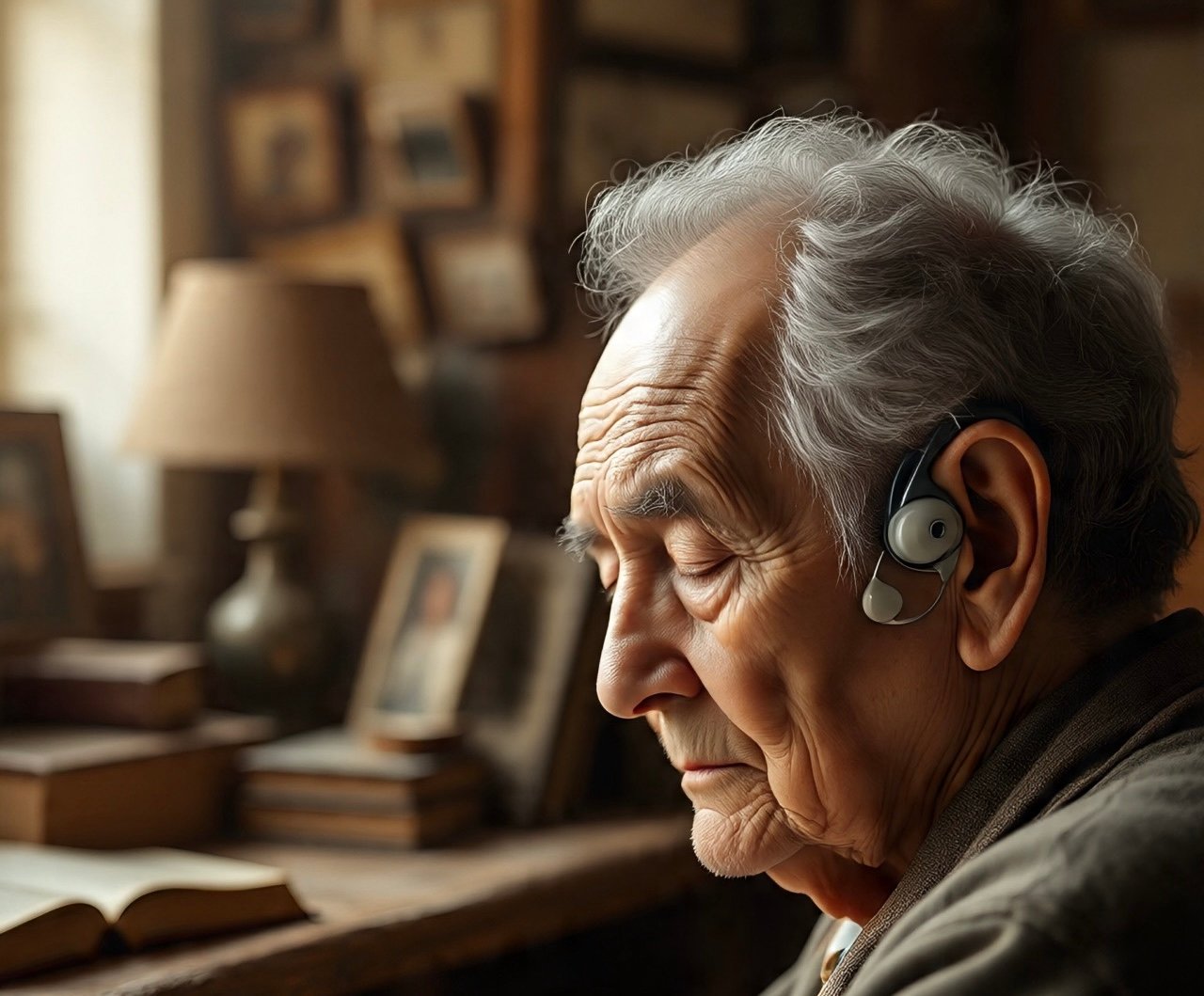Hearing loss isn’t just about your ears—it’s about your brain!
New research reveals that hearing impairment, combined with feelings of loneliness, can dramatically speed up memory decline in older adults.
Why is hearing loss considered a silent threat to brain health?
Hearing impairment is often seen as a minor inconvenience, but research shows it is a major risk factor for cognitive decline. The inability to hear properly leads to:
- Social withdrawal and reduced interactions
- Communication difficulties causing emotional distress
- Lower alertness, which impacts mental sharpness
Over time, this creates an environment that accelerates memory problems and dementia risk.
What does the latest UNIGE research reveal?
A University of Geneva (UNIGE) study analyzed data from 33,000 adults over 50 across 12 European countries. The key findings:
✔ Hearing loss combined with feelings of loneliness creates an “explosive mix,” speeding up memory decline
✔ Interestingly, subjective loneliness matters more than actual social isolation
✔ Individuals who felt lonely despite being socially active experienced faster cognitive decline when also hearing-impaired
This means emotional perception of loneliness, not just physical isolation, is a major factor in mental health.
How big is the problem globally?
According to the World Health Organization (WHO):
- 2.5 billion people will experience hearing loss by 2050
- Over 25% of people aged 60+ have disabling hearing impairment
- This doubles or triples the risk of dementia and memory loss
What steps should you take to prevent hearing-related cognitive decline?
- Get a hearing test early – Don’t wait for severe symptoms
- Use hearing aids if needed – Enhances social interaction and reduces brain strain
- Engage in conversations – Stay socially and mentally active
- Exercise regularly – Physical activity improves blood flow to the brain
- Follow a brain-healthy diet – Include omega-3, leafy greens, nuts
- Address loneliness – Even socially active people can feel isolated
What medicines or treatments are available for hearing loss?
While no pill can restore natural hearing fully, these interventions help:
- Hearing Aids – The most effective tool for age-related hearing loss
- Cochlear Implants – For severe hearing loss when aids don’t help
- Earwax Removal or Infection Treatment – For temporary hearing problems
- Vitamin Supplements (B12, D) – Beneficial if deficiency is contributing to hearing issues
Precautions and Remedial Measures
✔ Avoid prolonged exposure to loud sounds
✔ Use noise-canceling headphones instead of turning up the volume
✔ Schedule annual hearing check-ups after age 50
✔ Treat ear infections promptly
✔ Stay mentally and socially active
Why is loneliness such a strong factor?
Feeling lonely triggers stress hormones and inflammation, which damage brain cells. When combined with hearing loss (a barrier to communication), the brain works harder to process sounds, leaving fewer resources for memory and cognition.
Frequently Asked Questions (FAQs)
1. Can hearing loss really lead to dementia?
Yes. Studies suggest hearing impairment increases dementia risk by up to two to three times.
2. Does wearing a hearing aid improve brain health?
Yes. Hearing aids restore communication and reduce cognitive load, helping maintain brain function.
3. What’s the difference between loneliness and isolation?
Isolation is physical separation. Loneliness is the feeling of being disconnected, even when surrounded by people.
4. Is hearing loss reversible?
Not usually. But with hearing aids, cochlear implants, and early care, you can minimize its impact.
5. What age should you start hearing check-ups?
After 50 years, an annual hearing screening is recommended.




